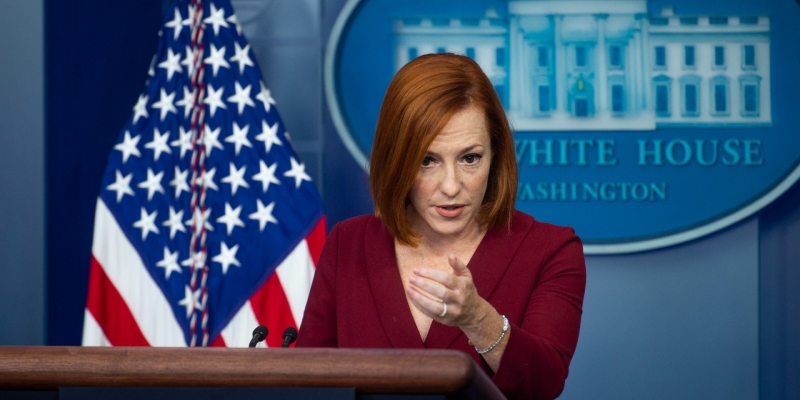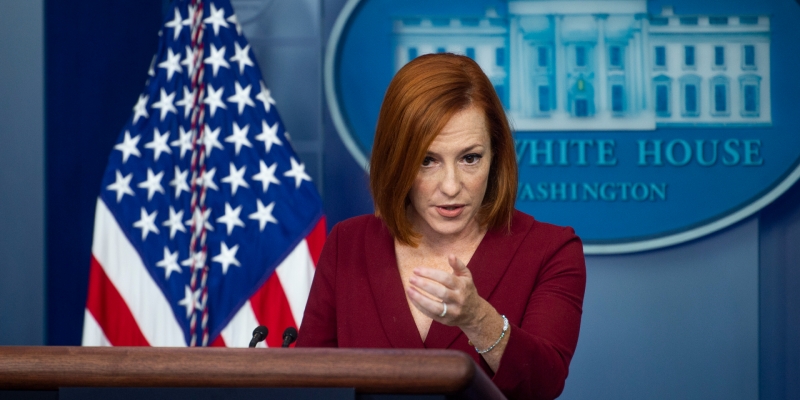Earlier, the Russian president made a proposal to start substantive negotiations on achieving legal guarantees of non-expansion of NATO to the east

White House Press Secretary Jen Psaki
The decision on a country’s membership in NATO is made by the member states of the alliance, not Russia. This was stated by White House press Secretary Jen Psaki, reports The Washington Post.
“Only NATO countries can decide who is a member of the alliance, not Russia. It is important to remember who is the provocateur in this situation, and it is not the United States or Ukraine,” she answered a journalist’s question about Russia’s demand for guarantees of non-expansion of the alliance.
She also added that the United States is actively consulting with European partners and the US Congress on the issue of the buildup of Russian troops near the borders of Ukraine. “We know that the President [of Russia Vladimir] Putin has done it in the past. We see how he faces difficulties in giving the order to invade [Ukraine] in a short time,” she added.
On December 1, Russian President Vladimir Putin proposed to start substantive negotiations on achieving legal guarantees of non-expansion of NATO to the east. According to him, Russia intends to seek “reliable and long-term security guarantees” and in negotiations with the United States and its allies will “insist on developing specific agreements”.
In early December, NATO Secretary General Jens Stoltenberg also said that the decision on the degree of readiness of Ukraine to join NATO will be made by the members of the alliance, and Russia does not have the right of veto in this matter. According to him, any future Russian aggression against Ukraine will be costly and will entail serious political and economic consequences for Moscow. In November, Stoltenberg also admitted that American nuclear weapons deployed in Europe could end up in Eastern European countries if Germany refuses to deploy them.
In early November, the Washington Post and Politico reported, citing their own sources and satellite imagery data, that Russia was building up troops on the border with Ukraine. Kiev initially denied the threat, but later the President of Ukraine, Vladimir Zelensky, announced 100 thousand Russian troops concentrated on the eastern borders.
In response, Putin said that the topic of the “invasion” of Russian troops in Ukraine was raised at the beginning of the year, but the invasion itself has not yet happened. He also noted that he sees threats to those who live in the self-proclaimed LPR and DPR due to the movement of the armed forces of Ukraine near their territories.
Subscribe to YouTube RBC Live broadcasts, videos and recordings of broadcasts on our YouTube channel

